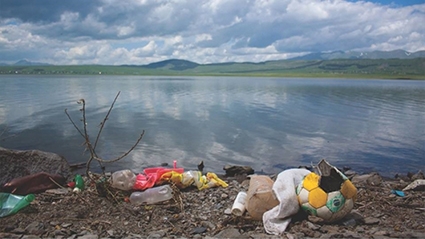The World Is Entering a Climate Crisis – Georgia Needs to Act
Climate scientists warn that our planet is heating faster than they previously predicted. As earth heads towards breaking point, Philip Alston, UN special rapporteur on extreme poverty and human rights, stated last week that the impacts of global heating could undermine basic rights to life, water, food, and housing as well as democracy and the rule of law.
Following the worldwide trend, Georgia’s biodiversity and climate are also changing. The International Union for Conservation of Nature Red List includes 29 mammals, 35 birds, 11 reptiles, 2 amphibians, 14 fish and 56 woody plant species on Georgia’s list of endangered species. The UN has listed habitat loss due to logging, water pollution and intensive grazing, as well as the unsustainable use of biological resources as the main danger to Georgia’s biodiversity
In addition, the average temperature in Tbilisi has increased by 0.7 degrees over the past 50 years.
The Georgian government has implemented some initiatives to protect biodiversity, protect the environment and encourage sustainable development. In 2019, the state budget for biodiversity increased to 720,000 GEL, according to the UNDP.
On 28 June, the National Environment Agency, the Ministry of Environment Protection, the Ministry of Agriculture and the UNDP signed an agreement on the fourth national climate change framework and second two-yearly report.
The agreement aims to tackle climate change in Georgia on a national level, in accordance with the requirements of the Paris Agreement, a UN framework on climate change to deal with greenhouse-gas-emission mitigation.
Despite small steps by the government, environmental protection measures in Georgia remain limited in part due to a lack of infrastructure.
For example, in June, Tbilisi City Hall installed recycling separation bins along Rustaveli Avenue. Yet, with lacking infrastructure and education, the waste is not necessarily recycled. GEORGIA TODAY have witnessed waste disposal workers throwing the separated recycling waste into a mixed general waste bin.
Europe experienced record temperatures this weekend as a heatwave swept across the continent. Temperatures in Montpellier in the south of France hit 45 degrees, the same as you would expect in the US’ Death Valley during August. As the affects of climate change are being felt, it is beyond time for citizens and governments to act.
How to be more environmentally friendly in Georgia
Minimize plastic consumption
Many businesses in Georgia use large amounts of plastics: takeaway coffee cups, plastic bags, straws. A report by the EU in 2018 found that around 900,000 tons of waste are generated annually in Georgia, of which more than 75% goes to landfils. To reduce the amount of plastic that ends in landfill, take your own alternative with you such as reusable coffee cups, metal straws and canvas bags.
Take public transport or walk
The pollution in Tbilisi caused by poorly maintained vehicles and congestion could be minimized if more residents choose to walk, cycle or take public transport. In addition, carpooling could reduce the number of cars on the roads.
Avoid meat
Although many Georgian dishes include meat, Georgian cuisine can be easily adapted to a vegetarian lifestyle. Lobio, khachapuri, ajapsandali, salads, and a number of other dishes are meat free. In addition, Tbilisi has numerous vegetarian and vegan restaurants such as Kiwi Vegan Cafe, Mama Terra, and Hummus Bar.
By Amy Jones
Image source - Geocell












